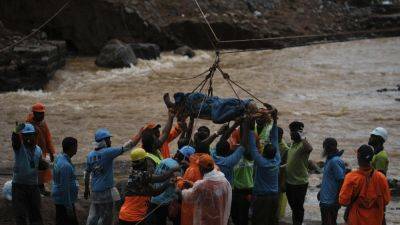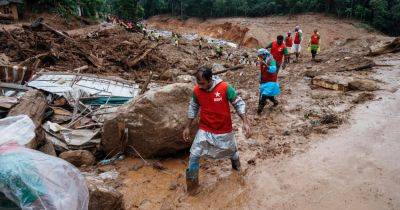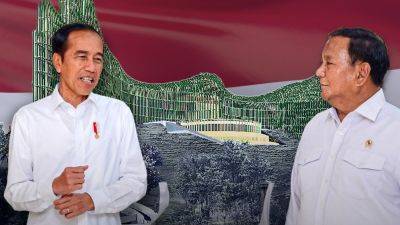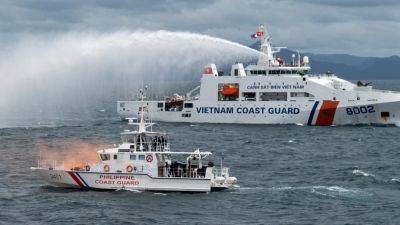Indonesia’s sea nomads turn to jobs on land due to climate change, overfishing
Sofyan Sabi’s sea-dwelling community has fished beneath the waves off the Indonesian coast for centuries, but climate change and overfishing have forced him and many of his contemporaries on land to make a living.
The Bajau tribe of fishermen led a nomadic life at sea for generations, spending days and nights on boats with thatched roofs in the waters between Indonesia, Malaysia and the Philippines.
Members of the tribe learn to dive from a young age, and their bodies have adapted over time to allow them to fish underwater for longer periods, researchers say.
But for the hundreds of Bajau people living on the tiny boardwalk island village of Pulau Papan in Indonesia, their ancestors’ unique way of life has all but died out.
“We changed professions. We are fishermen who work at a farm. Farming gives better income because there are many crops I can plant,” Sofyan said, adding that he owns a nearby two-hectare plot to grow corn and bananas.
“Sometimes we earn nothing by going to sea. Sometimes there are fish, sometimes there aren’t any,” the 39-year-old said.
Trained to hold his breath between 10 and 15 metres (33 and 50 feet) deep since he was a child, Sofyan still scans the waters for sea cucumbers or an octopus that could earn him as much as 500,000 rupiah (SU$31).
Researchers attribute the Bajau ability to dive deeper and longer to a possible genetic mutation that has given them larger spleens, allowing their blood to store more oxygen.
But commercial overfishing and rising temperatures have made sea catches increasingly unpredictable, said Wengki Ariando, a researcher at Thailand’s Chulalongkorn University who has studied the Bajau.
“They are facing decreasing marine resources,” he said.
As temperatures rise, fish migration and







